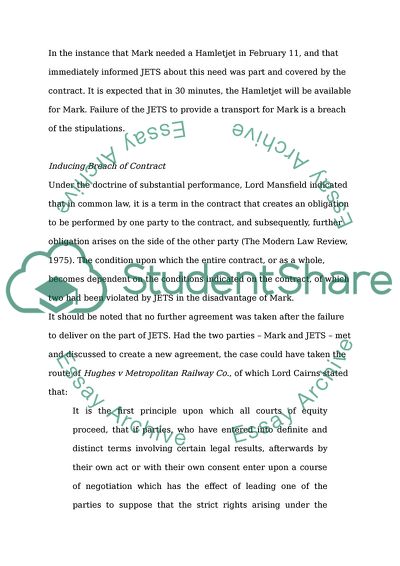Cite this document
(“The Doctrine of Substantial Performance: Mark and JETS Case Study - 1”, n.d.)
The Doctrine of Substantial Performance: Mark and JETS Case Study - 1. Retrieved from https://studentshare.org/law/1751693-contract-law-essay
The Doctrine of Substantial Performance: Mark and JETS Case Study - 1. Retrieved from https://studentshare.org/law/1751693-contract-law-essay
(The Doctrine of Substantial Performance: Mark and JETS Case Study - 1)
The Doctrine of Substantial Performance: Mark and JETS Case Study - 1. https://studentshare.org/law/1751693-contract-law-essay.
The Doctrine of Substantial Performance: Mark and JETS Case Study - 1. https://studentshare.org/law/1751693-contract-law-essay.
“The Doctrine of Substantial Performance: Mark and JETS Case Study - 1”, n.d. https://studentshare.org/law/1751693-contract-law-essay.


